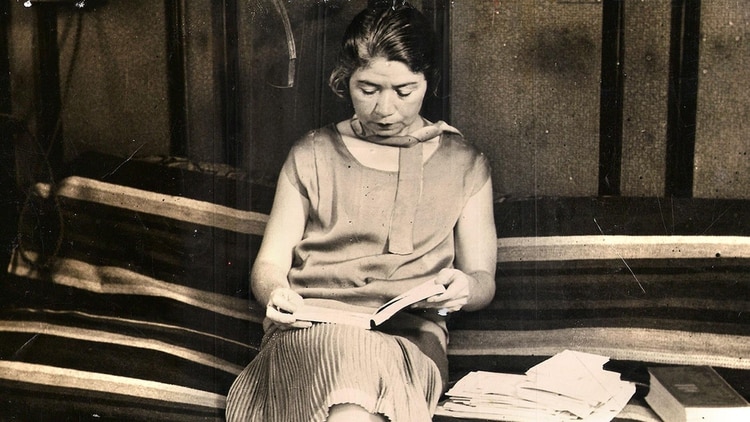Died by suicide: who is Alfonsina Storni?
Alfonsina Storni (1892-1938), her name meaning noble and ready for war. Argentine poetess. Feminist. She had a very difficult childhood. She experiences a youth full of pain and then a middle age full of pain. She briefly lives a life full of pain.

She is an Argentine woman writer. She was born in 1892. While her family was good at first, her condition was deteriorating due to her father's alcoholism and her mother's illness. Alfonsina Storni, who started writing at the age of 11, has many successful works. She got breast cancer in 1935 and Alfonsina Storni, who was depressed because her treatment was not successful, wrote a work called "I Will Sleep". When that work was published, Alfonsina had taken her own life by jumping into the sea.
Despite everything, “I ... walk alone and laugh ... my son and then me, and then ... whatever comes!” she writes poems.
She cannot find an old age opportunity to live with pain. After losing all her loved ones, she fell ill with cancer and, at the age of 46, wrote her last poem "(Now I'll Sleep)", then walks "towards the sea" on the coast of La Perla in Mar del Plata, Argentina, and never returns.
Someone – Félix Luna – writes a lament after her: Alfonsia y el Mar/Alfonsina and the Sea: The lament says:
You take your loneliness and go, Alfonsina. What new poems are you after? The ancient sound of wind and salt shatters and takes away your soul. and you go farther as if in a dream, asleep, Alfonsina, dressed in the sea.
Another – Ariel Ramirez – composes this elegy.
We think how bad such a death is, but when we imagine the suffering...
What kind of life did she have?
Alfonsina was born in Sala Capriasca, Switzerland, the daughter of an Argentine brewer father. Here she had the opportunity to learn Italian. Due to the failure of the family business, her family returned to Argentina and opened a tavern in the city of Rosario. In this tavern, Alfonsina was engaged in various day-to-day chores.
Joining a traveling theater team in 1907, the writer had the opportunity to travel around the country. In this context, she acted in plays such as Henrik Ibsen's Spectres, Benito Pérez Galdós' La loca de la casa and Florencio Sánchez's Los muertos. After returning to Rosario, she completed her job as a rural primary school teacher and worked for magazines such as Mundo Rosarino, Monos y Monadas, and Mundo Argentino.
She settled in Buenos Aires in 1911 and a year later gave birth to her illegitimate son, Alejandro, from a Coronda journalist. Despite the economic difficulties she experienced in the following years, she published her work La inquietud del Rosal in 1916 and then produced content for the magazine Caras y Caretas while working as a cashier in a market.
After a close friend, Quiroga, committed suicide in 1937, she entered a period of breast cancer and loneliness.
She arrived on the shore of La Perla in Mar del Plata, Argentina, after midnight on October 25, 1938. The next morning, two workers found the writer's body washed up on the beach. However, according to biographers, the artist committed suicide by jumping from a breakwater into the sea and walking in the sea until the sea deepened and she drowned.
5 famous quotes by Alfonsina Storni
https://exploringyourmind.com/5-famous-quotes-by-alfonsina-storni/
